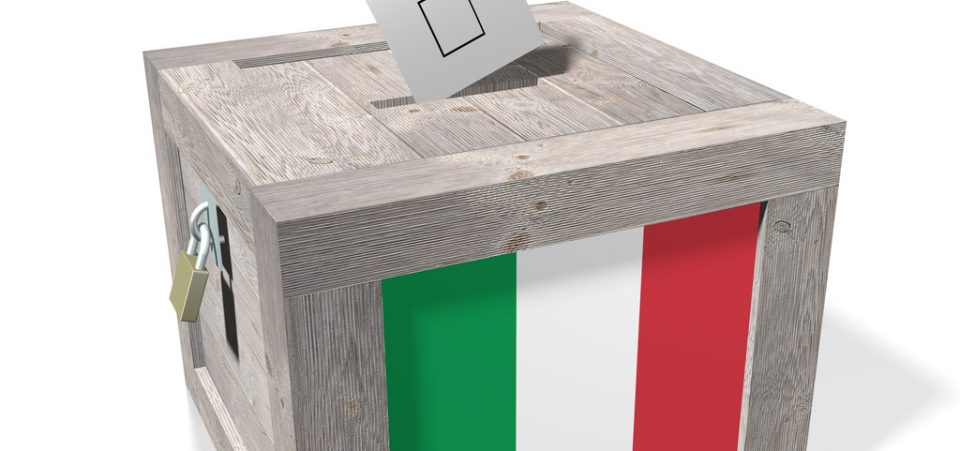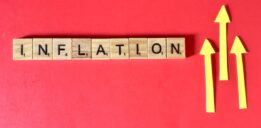Italian Election Results Threaten Economic Collapse in Europe
The political scenario is complex at best, but while stock exchanges appear to have ignored the results of the Italian election (or have already accounted for it), there are plenty of reasons you should be concerned about your investments. A stock market crash in the short term is likely, and much bigger dangers lurk in the longer term.
On March 5, Italy and the world woke up to discover that the untested Five Star Movement (M5S) and a much stronger League (formerly the Northern League) had won the parliamentary election. Many believe, though some dispute, that both parties express right-wing positions, but there’s little doubt that both parties express populist ideas.
The Right may have just inflicted the biggest political defeat of the Center and Left in Italy since World War II. The Center and Left (or what passes for it) failed to consider the issues and concerns that most Italians worry about. They pulled a Hillary Clinton. Mercifully, the Italian media, academics, and pundits have not blamed Vladimir Putin and Russia or any other outsider, even if there’s plenty of blame that belongs outside Italy.
ECB Is Only Barrier Between Salvation and Disaster
Now, perhaps the only thing that stands between salvation and disaster for Europe is Mario Draghi and the European Central Bank (ECB). When Draghi leaves his position in 2019, the European Union (EU)—especially its southern members, the so-called PIGS (Portugal, Italy, Greece, and Spain)—will see the end of quantitative easing. The ECB’s policy of buying Italian treasury bonds has allowed Italy to survive the financial burden of its public debt.
Once that’s over and interest rates pick up again, Italy could go the way of Greece. A populist, anti-EU party in power may allow it to happen, and the consequences are unknown. The markets may well start to address this risk sooner rather than later.
Don’t let Wall Street’s performance fool you. Yes, on March 5, there was no stock market crash. But that’s because, given the structure of the Italian political system, elections are just a guide. As in many European countries, when there’s no clear and outright winner, negotiations are necessary to form a government. In short, the name of the next prime minister is not yet known.
That’s where we find the first problem: the uncertainty. How long will it take to form a government? The efficient Germans have only finally decided to form a (fragile) coalition, five months after their vote. In Italy, there will be efforts to avert a purely right-wing government, with strange bedfellows coming together in precarious formations. One of the most likely scenarios surely involves a return to the polls in short order.
The “Bund Spread”
Investors, interested solely in the markets, can stop here. All they need to know is that, if the markets have reacted calmly, it’s only temporary. Europeans will be looking at the spread between German and Italian bond yields. For the time being, given that the messy results were expected, the markets appear to be taking the news in stride.
For the record, on March 5, a day after the vote, the yield of the 10-year bond (which was at the heart of a major crisis in 2011/2012) is a tad higher than before the vote (two basis points). The European markets had expected the confusing results, which pollsters had projected weeks ago.
The spread between Italian multi-year treasury bonds (BTP) and German bonds (bund)—which, since the introduction of the euro, has become the main risk indicator for analysts—is currently determining that Italian financial risk has remained stable, compared to the average of the past five years.
As for the U.S. dollar, it has gained slightly, compared to the euro.
The Italian election can take full credit for that result. Indeed, had the U.S. economy—and U.S. politics—suffered the current period of turmoil, the dollar would be performing better. But, as in the case of the German bond spread, the dollar and euro are trading well within the range of the past few weeks.
The long gestation period of various elections and referendums, starting with the Brexit vote in 2016, have taught investors that, in European politics, everything takes time these days—even getting out of Europe.
The markets have been in correction mode since the end of January. It’s not just the Dow Jones that’s oscillating. Gold, silver, and the new so-called safe asset, Bitcoin, have produced a mixed bag of results. Nothing is clear now. And that’s what makes the situation so volatile. It’s no time to relax.
If the markets appear to have survived the Italian vote, it’s a temporary respite until the results that matter come out. A number of government formation scenarios are possible. The defeated Left parties could potentially come together and form a pact with the devil (Silvio Berlusconi’s centrist coalition).
The task of forming the new government now falls on President Sergio Mattarella. It’s up to him to facilitate the various parties in reaching an agreement. It’s a process—or limbo, if you prefer—that could last as long as two months.
Should the M5S form a government with the League, it would send a clear signal, and it would not be a hopeful one. The markets would react badly if this were confirmed. The League and M5S are the most anti-euro parties in Italy, both expressing anti-EU and anti-euro sentiment.
They threaten to dismantle the financial reforms that previous governments have adopted to counter pressure from the more “virtuous” EU States like Germany. Finally, both parties would promote and encourage “populist” causes, which could degenerate in demagogy and dangerous politics.
That’s when the yield spread could reach dangerous levels, further damaging the already over-leveraged banking system. The European markets and the euro would not react well to such a worst-case scenario. Unfortunately, everything now presages just such a situation.
Italian Election Is a Potential Black Swan
The markets would call the current situation in Italy “tail risk” and Nicholas Nassim Taleb would call this a “black swan.” I prefer the latter term, for it better expresses the inherent dangers of such a setting. The alternative would not produce better results in terms of stability, at least in the short term. It would involve a coalition of all of the major political forces. They would have to approve another electoral law and then call for new elections.
That scenario, given Italian history, might be more likely, but it would prompt a negative market response—perhaps not as deep, but still fully present. It’s true that, given the weight of EU policy over the individual member states, it makes the markets digest the Italian vote results with greater ease. It may also be a fact that investors have more to worry from President Donald Trump, who has recently resumed threats of tariffs and import duties, including against the EU.
Trump has also not relented in his threats against North Korea and Iran, while calling for higher military budgets, already at some $700.0 billion.
The combination of political risks surging on both sides of the Atlantic could come together to form a perfect storm of turmoil, which could inflict heavy damage to the global economy.
The Right Hasn’t Held Power in Italy Since World War II
The victory of the Right in Italy is dangerous. Understand that Italy just voted to install the most right-wing government since the Grand Council of Fascism ousted Benito Mussolini on July 25, 1943 with a vote of no-confidence. The Right is divided and it avoids the term “fascism” nowadays, but it’s more united than the opposition.
Thanks to the divided opposition, the Italian Right has accomplished what the French, Germans, and Dutch could not, and it makes the achievement all the more dangerous. Italy is a political laboratory. Since Rome itself, it has tested all forms of government and invented new ones. The words Republic, Senate, President, and Minister all have Roman (Latin) roots.
The Founding Fathers of the United States deliberately shaped their republic based on Rome. Just look at the buildings in Washington D.C. Indeed, the very concept of modern law and courts, detached from religion and faith, is Roman. Fascism was an Italian political experiment and Mussolini was its chief research scientist.
But Italians have an epicurean sense of equilibrium or balance. When you measure your history in thousands of years, society develops antibodies to extremes. Thus, it took a German to explore the full depths of fascism’s darkness. Latin Americans have experimented with it as well, apparently unable to realize where fascism leads.
Italy’s fascistic tide this time, as with last time, has not occurred in isolation. It is a direct function of global social and economic phenomena.
In a nod to the recently held Oscar awards in Hollywood (and its tradition of thanking and praising those who somehow were responsible for the superlative performances), M5S leader Luigi Di Maio and the League leader Matteo Salvini might want to thank Hillary Clinton and Barack Obama.
They might want to express the following sentiments:
Grazie Hillary and Barack. Your interventions in Libya and Syria have disrupted a delicate balance in North Africa and the Middle East. This has produced war, political instability, and economic instability throughout these regions, spilling into the Mediterranean and reaching European shores. There, the fleeing migrants have tried to enter the countries that most suffered the effects of the 2008 financial crisis and the German-dominated EU austerity measures.
So, you encouraged hundreds of thousands of people from precarious and unstable regions to flood into cities and towns already filled with angry and desperate locals looking for reasons and people to blame for their economic depression. And, let’s face it, what we’ve witnessed since 2008 has been a depression, not a recession. Virtue signaling was not enough to beat the anger of a minority unified in their fear of the illegal and uncontrollable migration phenomenon.






